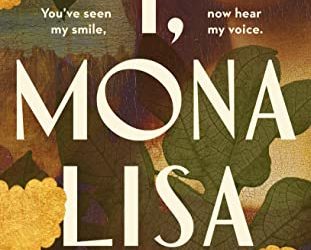More people are finding out that they’re dyslexic, so it seemed like a good time to write a big picture of dyslexia for new members. DYSLEXIC STRENGTHS First of all, there seem to be intrinsic strengths associated with dyslexia and not simply weaknesses or impairments. Understanding the strengths and positive differences can help people navigate through the most difficult periods of schooling and life. We discuss dyslexic MIND strengths in more detail in our book, The Dyslexic Advantage, but briefly, these strengths include reasoning through materials and physical experiences, reasoning through the interconnection of ideas and knowledge, storytelling, and reasoning through visualizations and mental simulations. Dyslexic learning may conflict with conventional classroom instruction because traditional teaching may emphasize passive learning and rote memorization over […]
PTSD and Dyslexia
“This study identified that emotional trauma took place in all participants, and this resulted in many having Post-Traumatic Stress Disorder manifestations as a result of returning to school for their own children. Participants still noted anger and resentment as adults towards their childhood teachers…” — Neil Alexander-Passe In Neil’s study of PTSD or post-traumatic stress disorder in dyslexic adults in the United Kingdom, he found that all experienced emotional trauma in their time in the public school system and over half (64%) experienced PTSD or school avoidance symptoms when re-entering schools as parents, resulting in anxiety with many stating that they felt powerless as a child. PTSD symptoms occurred in the same frequency whether or not adults had achieved advanced degrees.
From […]Henry Winkler: Find the Very Best for You
“There is an emotional component to the learning challenged,” says Winkler, whose parents called him “dumb dog” for his failures. “You don’t have a sense of self because you’re not keeping up with everybody… you feel terrible about yourself.” — Henry Winkler Henry Winkler seems to be everywhere. He seems to be having the time of his life and giving generously of his life lessons and hopes for the future. He’s currently in the 3rd season of HBO’s Barry, in an Emmy Award-winning role of a drama teacher, but he also finds every opportunity to share his life lessons about dyslexia and finding the very best for yourself.
In a lovely interview in the New York Times, Henry shared how he fell […]Grit and Resilience [Premium]
“The worst problem any dyslexic has to face is not reading, writing, or even spelling, but a lack of understanding…” — The Reality of Dyslexia Grit is the ability to persevere in the face of setbacks, challenges, pain, and adversity. Resilience is similar, but different in the sense it describes an ability to “bounce back” from difficulties. Both, as it turns out, are important for the achievement of long-term goals and mental well-being. When students in dyslexia specialty schools were studied over the course of years, researchers found that grit and resilience scores increased over time in these schools – and that correlated with lower levels of anxiety and depression and improved academic performance. Want to assess your grit? Click here —> GRIT SCALE […]
Rogue Hero: Mastermind of the Special Air Service, David Stirling [Premium]
“The boy Stirling is quite mad, quite, quite mad. However, in a war there is often a place for mad people.” — General Bernard Montgomery A recent documentary on the founding of the British Special Air Service mentioned that the unconventional mastermind was, in fact, dyslexic. David Stirling has a very non-linear and unpredictable start to his adult life. He started at Cambridge, but was thrown out in his first year because of a variety of poor performances and vices including gambling. He tried to make his way as an architect, then artist, then became interested in the possibility of becoming a mountaineer and reservist in the Scots Guards. David was in America working as a cowboy when the World War II began. He […]
Department of Education Issues Letter on IDEA and Private Schools
Under the IDEA or Individuals with Disabilities Education Act, a free and appropriate public education (or FAPE) is granted to eligible students with disabilities. In schools, a lot of the funding for special education and additional resources is provided under funds from the IDEA. Recently, the Department of Education published a Q & A document specifying rights for children with disabilities placed by their parents into private schools. To read the document directly, click HERE. The document may be valuable for students who have been placed into private schools in order to obtain a free and appropriate education. For instance, if a student with significant challenges due to dyslexia was enrolled in a private school by their public school district in order to provide them […]
Novelist Natasha Solomons
“Books are my refuge, but I had to overcome dyslexia to write the stories I was bursting to tell.” — Natasha Solomons Natasha is a lifelong storyteller, but it took a lot of persistence and resilience to get those stories out. As a child, she listened to stories incessantly and her grandfather (also dyslexic) had the foresight to pass on his antique writing desk to her when she was just 10 years “to help her with ambition of becoming a writer.” It would be nearly 20 years later, but Natasha would write a novel at that writing desk that would earn a six-figure advance. Currently she is the author of 8 novels. She recently wrote a poignant article for The Guardian. An excerpt: “…stories […]
Study Hacking The Paper Driver’s License Test [Premium]
The Washington state driver’s license paper and pencil test can be a difficult one for dyslexic drivers. Having seen some of the sample questions, there’s a lot more number trivia compared to the California test I passed many years ago. Whether you don’t drink alcohol or smoke marijuana, you have to answer specific questions about how long it takes for the body to recover from a drink or smoking, but also answer detailed questions about how many days you have before reporting the sales of a vehicle to the Department of Licensing (5 days). With many similar questions and answers, the pass rate is 80% (what a nightmare!). ‘STICKY’ MEMORY CAN INTERFERE WITH ROTE STUDY FOR DRIVER’S TEST How to study for this […]
Reading and Learning are About Thinking [Premium]
“Then a strange thing happened. The more I started thinking about what we were studying, the easier it was to remember the facts. Facts began to stick in my head — and I didn’t even have to try to make it happen…” — Don Johnston, CEO After using Don Johnston’s assistive technology with our kids when they were growing up, it was such a pleasure for us to meet Don Johnston himself for the first time a few weeks ago. We hadn’t known that he is dyslexic and before we met, he shared his autobiography (for kids), Building Wings. The book is available in e-book form HERE and otherwise through Amazon. Like many dyslexic adults, Don vividly remembers events from his childhood and school […]
Non-Reading Ways to Recognize Dyslexia [Premium]
Last month, I was surprised when one of the teachers in our Dyslexia for Teachers course said that a writing sample couldn’t lead anyone to suspect a student had dyslexia because dyslexia was a reading disorder. Of course, that statement is wrong. KNOWING MORE THAN THEY CAN EASILY SHOW BY TESTS OR WRITING Perhaps the most common way that dyslexic students come to the notice of their teachers is by unevenness in their abilities or what some refer to as a “spiky profile.” They may have strong reasoning abilities and make thoughtful observations and comments during class, but their written work may may be far lower than their knowledge from trouble getting their ideas on the page, the need for extended time, and […]
Visualizing for a Living [Premium]
“My mind is very visual: I can see anything in pictures, and I always visualize things. I can’t help it. It’s how I’m wired. So whatever you talk about, I’ll see pictures in my head. Very vivid, colorful, lifelike pictures. They aren’t still pictures. I can make them move. Reality, fiction, whatever. I really have to pull it back in to get focused. It was also a problem in the classroom because I’d sit there and imagine where I’d want to be, and what I’d want to do, and what I wanted to become, and I’d think happy thoughts, and I’d just be tuned out the whole time in class.” — CEO Glenn Bailey When Brock and I were on a radio show years […]
The Voice Inside Your Head [Premium]
“When I was eight years old, a school psychologist gave me a bit of advice about my brain. He said I may have a form of brain damage, and he wanted to send me to a special class. I was a classic dyslexic: I wasn’t born with a good memory, and I couldn’t concentrate; reading and writing were always a challenge for me. Throughout my school career, I learned by having my mother and friends read the syllabus to me; I forced myself to memorize it and what I didn’t get, which was most of it, I just didn’t get. I had no future because I just couldn’t grasp what was being taught to me. In twelve years of school, I couldn’t read a book […]

![New to Dyslexia [Premium]](https://www.dyslexicadvantage.org/wp-content/uploads/2022/07/New-to-Dyslexia-Premium.png)


![Grit and Resilience [Premium]](https://www.dyslexicadvantage.org/wp-content/uploads/2022/06/pexels-justyna-krawczynska-8940197-400x250.jpg)
![Rogue Hero: Mastermind of the Special Air Service, David Stirling [Premium]](https://www.dyslexicadvantage.org/wp-content/uploads/2022/06/David-Stirling-400x250.jpg)


![Study Hacking The Paper Driver’s License Test [Premium]](https://www.dyslexicadvantage.org/wp-content/uploads/2022/05/Study-Hacking-The-Paper-Drivers-License-Test-3-400x250.png)
![Reading and Learning are About Thinking [Premium]](https://www.dyslexicadvantage.org/wp-content/uploads/2022/05/READING-AND-LEARNING-ARE-ABOUT-THINKING-400x250.jpg)
![Non-Reading Ways to Recognize Dyslexia [Premium]](https://www.dyslexicadvantage.org/wp-content/uploads/2022/05/Non-Reading-Ways-to-Recognize-Dyslexia-Premium-400x250.jpg)
![Visualizing for a Living [Premium]](https://www.dyslexicadvantage.org/wp-content/uploads/2022/05/Visualizing-for-a-Living-Premium-400x250.jpg)
![The Voice Inside Your Head [Premium]](https://www.dyslexicadvantage.org/wp-content/uploads/2022/05/Voice-Inside-Your-Head-400x250.png)













